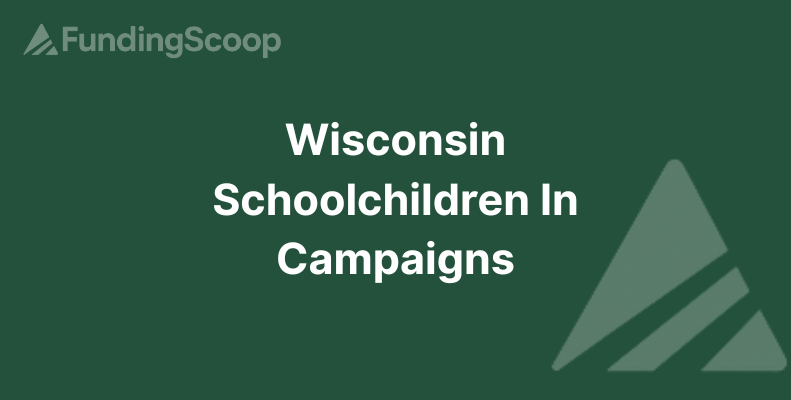
Wisconsin Schoolchildren In Campaigns
Nina Domingo
In Wisconsin, the political focus has shifted to education, with less than one-third of fourth-graders reading at grade level. Politicians are using this issue as a campaign tool ahead of the 2026 elections. While some advocate for real educational reforms, others are accused of leveraging the issue for votes. The question remains whether these discussions will lead to genuine change or be lost in political maneuvering.
Imagine a world where the future of an election hinges on the reading skills of children. That's exactly what's happening in Wisconsin. With fewer than one in three fourth-grade students reading at their grade level, education has become a hotbed topic in the political landscape as we eye up to the 2026 campaigns.
Here's where it gets interesting: education, once a sleeper issue, is now charged with the frenetic energy of political discourse. Politicians are leveraging these educational gaps not only to draw attention but to propose reforms that could sway voters come election time.
A Closer Look at the Dynamics
The reality, however, is more nuanced than politicians would like to portray. The state's educational system is fraught with challenges, from funding shortfalls to curriculum gaps. While some argue this focus on education will drive necessary reforms, others claim it's merely political theater.
In my conversations with founders and political analysts, there's a consensus: "The stakes are high. But are politicians truly concerned about the kids, or is this just another campaign strategy?"
According to an analysis by BBC News, educational reforms require deep, structural changes rather than quick fixes pinned to election promises. This sentiment is echoed by educators who feel paradigms need changing—from teaching methods to administration priorities.
Why Should We Care?
As I often tell founders engaged in social causes, "Your brand voice isn’t something you create in a workshop—it's something you discover by being honest about who you are." The same can apply to political campaigns. Authenticity in reform proposals is not just ethical; it's effective.
Here's what I'm noticing: some politicians are indeed making strides in addressing these crises, acknowledging both the benefits and challenges of suggested reforms. However, others are opting for the easy path, suggesting heavy-handed measures that may or may not stick post-election.
My Take
And honestly? There's room for optimism, albeit cautiously. Campaign promises can ignite necessary dialogues and, if pressure is sustained, even bring about change. But with educational policies as multifaceted as they are, superficial fixes won't hold water.
Moving forward, it's critical for all stakeholders involved—from educators to policymakers—to remain vigilant and ensure plans are put into action for the right reasons.
Concluding Thoughts
What I'm seeing is a complex dance: some teams are thriving on genuine reform ideas, while others are exploiting educational gaps for electoral gain. And yet, there's potential for meaningful change if we listen to the educators on the front lines.
The question remains: will these educational issues being spotlighted lead to substantive, lasting reform or merely fade into electoral noise? Only time will tell.


